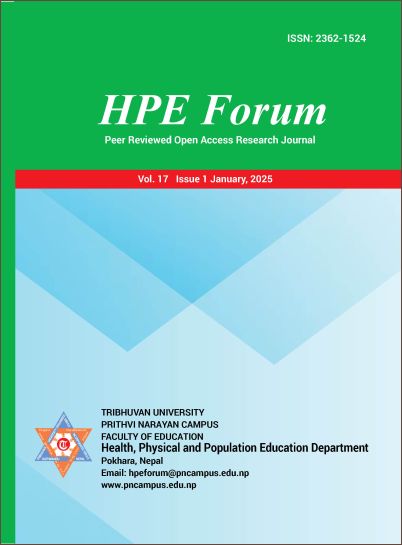Sustainable Adventure Sport Tourism: Evaluating Paragliding in Pokhara, Nepal
DOI:
https://doi.org/10.3126/hpef.v17i1.76538Keywords:
Job Satisfaction, Paragliding, Pokhara, Sustainable Tourism, Sports Tourism, socio-economic impactAbstract
This research, titled 'Sustainable Adventure Sports Tourism: Evaluating Paragliding in Pokhara, Nepal' aims to assess job satisfaction, and gather the perception of paragliding pilots and community members related to paragliding sport tourism. It significantly contributes to understanding the sustainability of adventure sports paragliding in Pokhara, Nepal. A mixed method (QUAN and qual) was employed, surveying 160 pilots from a population of 420. Observation and focus group discussion were conducted to determine the real situation and opinions on sustainability from the paragliding pilots and community people. Herzberg's two-factor theory of motivation was selected to assess satisfaction as a key factor in analyzing the sustainability of paragliding. Data were analyzed using the Statistical Process of Social Science for quantitative data. Findings revealed that 96.3% of pilots were male, most had secondary education, 38.1% had 9-12 years of experience, and the majority expressed job satisfaction. The findings exposed a positive correlation between job satisfaction and hygiene factors. There were no significant associations between job satisfaction and marital status or annual income with statistical significance indicated by a p-value of 0.011. The study recommends stricter environmental regulations and diversification of tourism offerings as key strategies. Engaging the local community is essential as they are directly affected by tourism activities and can provide valuable insights and solutions to ensure sustainability.




